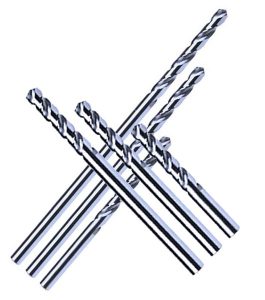
If you regularly drill into workpieces, you’ve probably experienced a broken bit. You may get halfway finished with a hole, only for the bit to snap in half. Broken bits are frustrating, but there’s usually a reason behind them. By understanding what causes drill bits to break, you can take steps to prevent it from happening to you.
#1) Wrong Material for the Job
You should choose a drill bit made of the right material for the job. Otherwise, you may experience a broken bit. High-speed steel bits, for instance, are ideal for wood and similarly soft materials, whereas cobalt bits are ideal for metal. You can also use carbide-tipped bits when drilling into concrete.
#2) Too Much Pressure
Pushing the drill too hard can result in a broken bit. When you push too hard, the bit may bend inside of the workpiece, which can lead to breakage. You’ll still need to apply some force when drilling, but let the bit do the work by digging out the workpiece’s material.
#3) Cheap Quality
The quality of a drill bit can vary. Some drill bits are built to last and feature high-quality materials and craftsmanship, whereas others are made to be dispensable. You can expect to pay more for high-quality bits, but it’s usually a smart investment that pays off over time. Cheap bits break frequently, so they must be regularly replaced.
#4) Too Fast
You should be conscious of your drill’s speed setting when drilling. Most drills have multiple speed settings. The higher the speed setting, the faster the chuck — and the attached bit — will spin. While a fast setting can help you drill holes more quickly, though, it also increases the risk of broken bits. If you’re worried that a bit will break, start with a slow setting and gradually speed it up as needed.
#5) Dull Bit
Another common reason drill bits break is because they are dull. Drill bits can and will wear down over time. Eventually, the tip may become so dull that it struggles to dig into workpieces. When this occurs, the bit will be exposed to excess stress during use, which can lead to breakage. If you have a dull bit, you can either sharpen it or replace it to protect against breakage.
#6) Clogged Flutes
Finally, clogged flutes can cause drill bits to break. Flutes are the long grooves along the shaft of a bit. They are designed to carry material out of holes. But flutes can become clogged with material, resulting in a backup of material that stresses bits. You can prevent this from happening by taking the bit out of the hole periodically when drilling.



